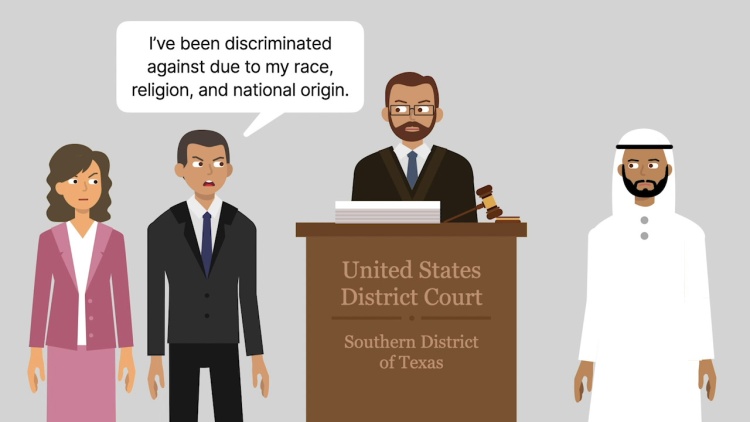Equal Employment Opportunity Commission v. Arabian American Oil Co.
United States Supreme Court
499 U.S. 244 (1991)
- Written by Craig Conway, LLM
Facts
Boureslan (plaintiff), a United States citizen originally from Lebanon, began working in 1979 for Aramco Service Company (ASC) (defendant) in Houston, Texas. The following year, Boureslan was transferred to Saudi Arabia to work for ASC’s parent company, Arabian American Oil Company (Aramco) (defendant). Both ASC and Aramco were Delaware corporations licensed to do business in Texas. Boureslan’s employment was terminated in 1984. After filing a discrimination claim with the Equal Employment Opportunity Commission (EEOC) (plaintiff), Boureslan filed a lawsuit in a Texas federal district court against Aramco and ASC, alleging violations of Title VII of the Civil Rights Act of 1964 (Title VII) and state antidiscrimination law. Defendants moved for summary judgment on the grounds that Title VII did not apply to United States citizens working abroad for American employers. The district court granted defendants’ motion and dismissed Boureslan’s state-law claims for lack of pendent jurisdiction. The Court of Appeals for the Fifth Circuit affirmed. The EEOC interpreted Title VII as applying to American citizens working abroad for American employers, but its position was arrived at recently and represented a change from its earlier interpretation of the statute. Both Boureslan and the EEOC filed petitions for certiorari with the United States Supreme Court, which granted both petitions.
Rule of Law
Issue
Holding and Reasoning (Rehnquist, C.J.)
Concurrence (Scalia, J.)
Dissent (Marshall, J.)
What to do next…
Here's why 907,000 law students have relied on our case briefs:
- Written by law professors and practitioners, not other law students. 47,100 briefs, keyed to 996 casebooks. Top-notch customer support.
- The right amount of information, includes the facts, issues, rule of law, holding and reasoning, and any concurrences and dissents.
- Access in your classes, works on your mobile and tablet. Massive library of related video lessons and high quality multiple-choice questions.
- Easy to use, uniform format for every case brief. Written in plain English, not in legalese. Our briefs summarize and simplify; they don’t just repeat the court’s language.





